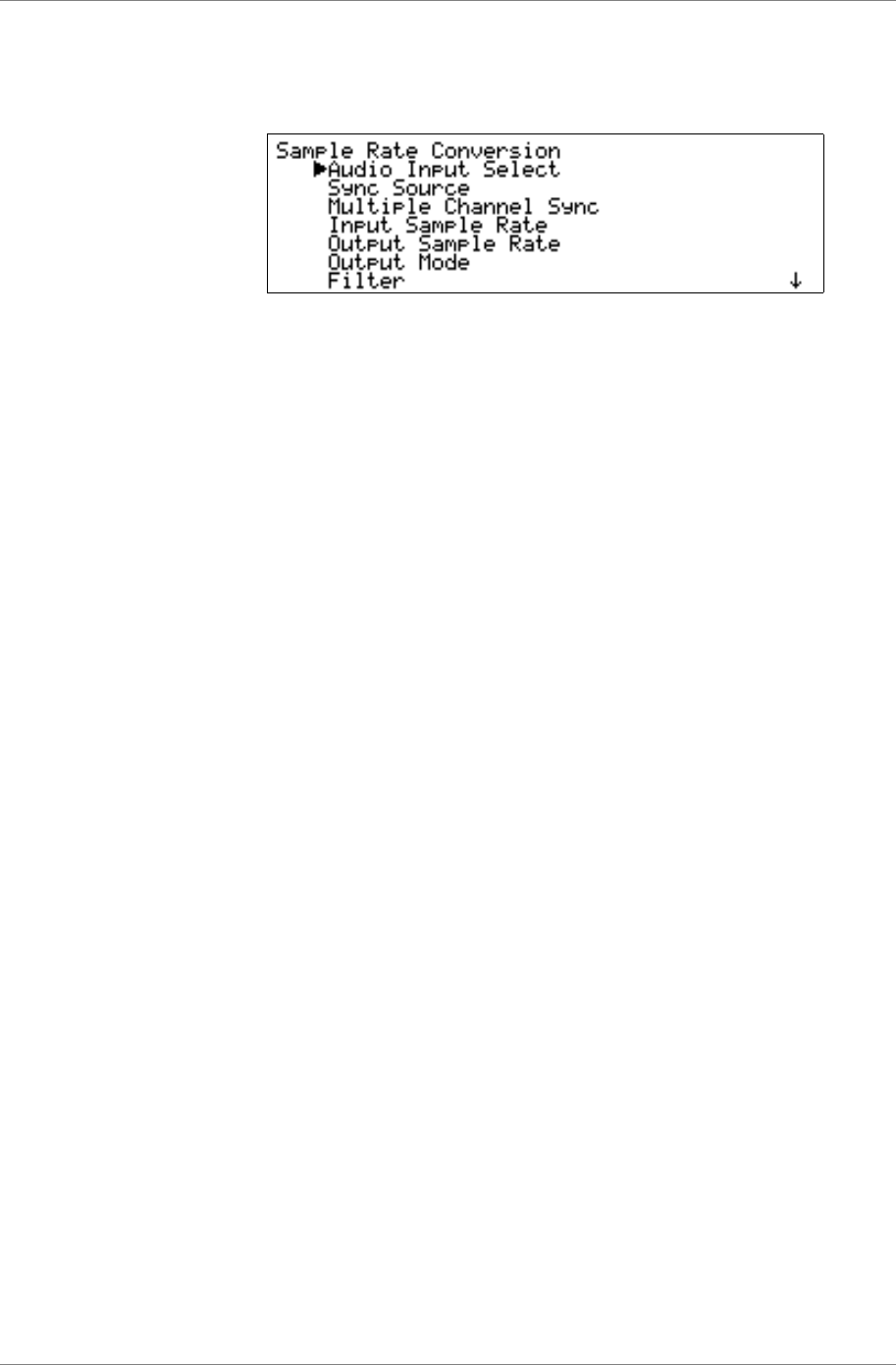
dCS 974 User Manual Manual for Software Version 1.0x
dCS Ltd May 2001
Manual part no: DOC1241121A1
Page 41
Document No: OS-MA-A0124-112.1A1
Contact
dCS
on + 44 1799 531 999 email to: more@dcsltd.co.uk
(inside the UK replace + 44 with 0) web site: www.dcsltd.co.uk
Sample Rate Conversion / Format Conversion Submenu
The Sample Rate Conversion menu is as follows:
Audio Input Select
Select the required input from the list and press Set. The Dual AES option
requires that the Input Sample Rate be set to 192 kS/s, 176.4 kS/s, 96 kS/s or
88.2 kS/s. The Quad AES option requires that the Input Sample Rate be set to
192 kS/s or 176.4 kS/s. The DSD setting automatically identifies DSD SDIF-2 or
DSD SDIF-3 data on the DSD/SDIF input.
Sync Source
Select a source to synchronise to from the list and press Set. The available
sync sources are:
Audio Input Syncs to the selected input source – this is the
normal setting.
AES Loop Syncs to the AES Ref Loop In, leaving the
reference unterminated to allow daisy-chain
connection through Loop Out to another device.
AES Loop Term Syncs to the AES Ref Loop In and terminates the
reference source.
Wordclock Syncs to DSD/SDIF WCLK IN (in the upper group
of connectors).
Internal Syncs to the dCS 974’s internal clock.
Lab Ref Syncs to a 10 MHz signal into DSD/SDIF CLK IN
(in the upper group of connectors).
For best results, synchronise to the Audio Input or a master clock on one of
the clock/reference inputs that is also driving the source. For DSD/SDIF inputs,
you can still sync to Audio Input as the unit will automatically sync to
DSD/SDIF WCLK IN. For DSD in SDIF-2 or SDIF-3 mode, a Wordclock must
be used – contact dCS if you need a Bit Clock.
The Lab Ref setting allows use of a GPS reference - if you use this, make sure
other parts of your system are also GPS sync’d.
Only select Internal sync if you are using the unit as a signal generator or a
reference clock source.


















